Ranking the Most Thrilling FIFA Club World Cup Finals Ever Played
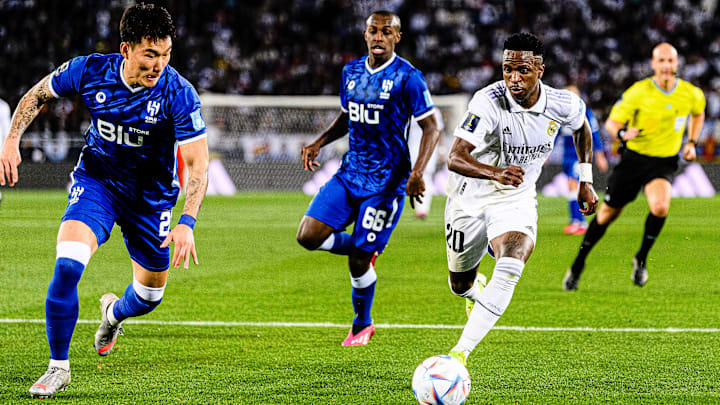
FIFA established the Club World Cup at the dawn of the 21st century with the goal of crowning a worldwide club football champion.
The Intercontinental Cup had existed since 1960, but participation was limited to European and South American clubs. FIFA envisioned something more comprehensive.
Initially launched as an eight-team competition featuring representatives from all six confederations, the Club World Cup remained relatively small-scale until its major expansion in 2025. Now featuring 32 teams, Gianni Infantino hopes his creation will serve as football's "big bang" and herald a new era, whatever form that might take.
Despite struggling to gain prominence since its creation, the tournament has produced some thrilling championship matches.
Here are Sports Illustrated's five greatest Club World Cup finals in history.
5. Real Madrid 5–3 Al Hilal (2022)
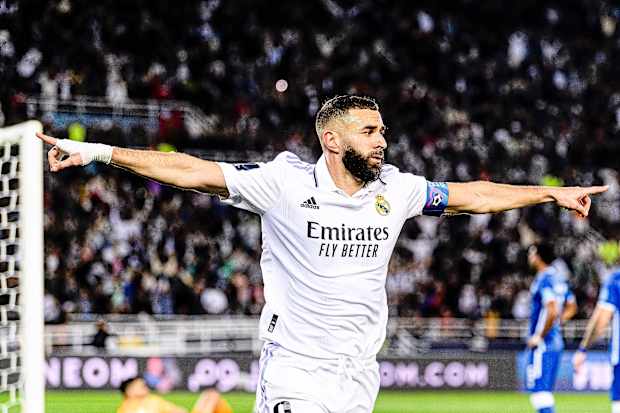
Real Madrid holds the record for most victories in this tournament, with their latest success coming in the highest-scoring final the Club World Cup has ever witnessed.
Their adversaries, Al Hilal, had not yet begun their massive spending sprees, with Moussa Marega likely being the most familiar face in Ramón Díaz's starting lineup.
Nevertheless, they managed to score three goals against the consistent European titleholders, who maintained dominance throughout the match.
Madrid established leads of 2–0, 4–1, and 5–2, with Vinícius Júnior and Federico Valverde each netting twice. Karim Benzema, who would subsequently join Al Hilal's Saudi Pro League competitors Al Ittihad, also found the scoresheet in Rabat.
4. Internacional 1–0 Barcelona (2006)
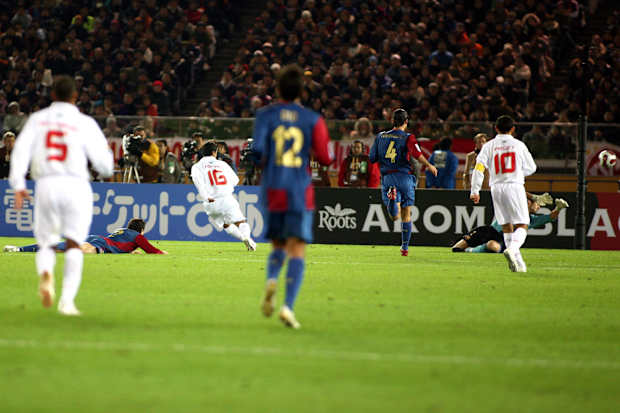
Brazilian clubs claimed the first three championships of this competition, but Internacional's 2006 victory stands as the most unexpected triumph.
Though they were a quality side featuring emerging talent Alexandre Pato, they were anticipated to be intimidated by a Barcelona team that had recently dominated Europe.
Frank Rijkaard's starting eleven in Yokohama boasted superstars like Deco, Ronaldinho, and Andrés Iniesta, yet they were frustrated by the Brazilians, who capitalized on their single second-half opportunity.
Replacement Adriano Gabiru was perfectly positioned behind Barcelona's defense by Iarley, and the striker executed a clever finish that Víctor Valdés could only briefly prevent from reaching the goal.
"This defeat doesn't belong to the team, it's my responsibility," Barcelona manager Rijkaard admitted after the game.
3. Barcelona 2–1 Estudiantes (2009)
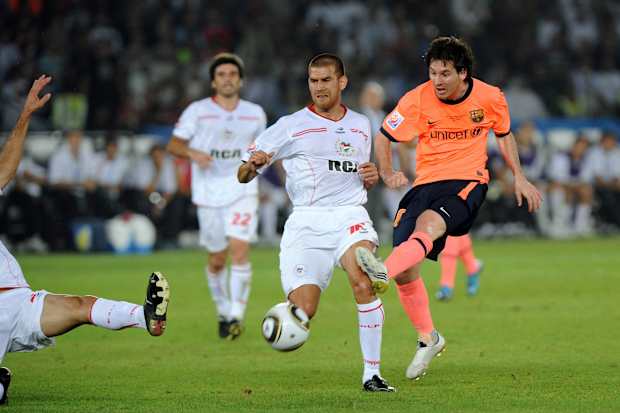
Barcelona nearly suffered another shock defeat to South American opponents three years later, but Pep Guardiola's dominant Blaugrana ultimately prevailed against Estudiantes.
The Argentine club had previously caused some of football's most notorious incidents in the 1960s, notably defeating Manchester United in the 1968 Intercontinental Cup final and losing to Milan the subsequent year.
The squad four decades later bore little resemblance to Osvaldo Zubeldía's aggressive team, yet they came remarkably close to defeating a Barcelona side many consider the greatest club team in history.
While Juan Sebastián Verón captained Estudiantes, Mauro Boselli was the striker who had guided them to Copa Libertadores success. The forward continued his scoring form in this match. His first-half header appeared destined to secure a massive upset for the Argentines, as an underwhelming Barcelona struggled for 89 minutes.
From nowhere, however, Pedro arced a header over goalkeeper Damián Albil to level the score before Lionel Messi controlled and scored the decisive goal in extra time.
Estudiantes coach Alejandro Sabella would subsequently manage Messi and Argentina during the 2014 World Cup.
2. Real Madrid 4–2 Kashima Antlers (2016)
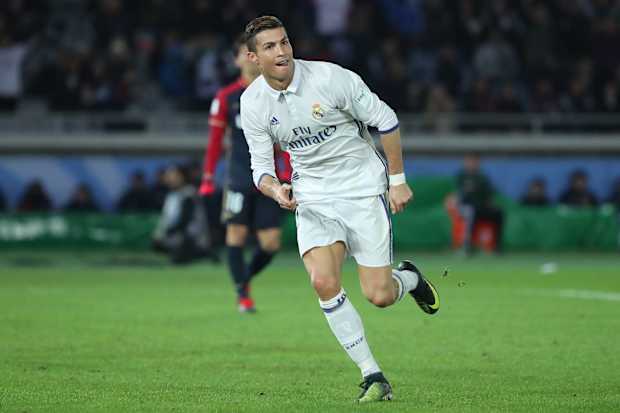
Four of the 20 finals played have needed extra time, including the inaugural 2000 match: a tedious all-Brazilian encounter won by Corinthians via penalty shootout.
A comfortable victory was anticipated for Real Madrid when they met Kashima Antlers, the first Asian club to reach the Club World Cup final, in 2016.
An early Karim Benzema strike was supposed to trigger a dominant performance, but Kashima, embracing their unique opportunity, refused to surrender on their home ground. Goals from Gaku Shibasaki before and after halftime shocked Los Blancos, who needed a comeback in the match's final portion.
Who else would they rely on but Cristiano Ronaldo, who had experienced one of the most remarkable years of his illustrious career? Following his winning penalty in the UEFA Champions League final and leading Portugal to Euro 2016 triumph, Ronaldo concluded his exceptional year with a hat-trick in the Club World Cup final, crushing Kashima's dreams.
Nevertheless, Madrid needed an additional 30 minutes to prevent a stunning upset, with Ronaldo scoring twice during the extra period.
1. Milan 4–2 Boca Juniors (2007)
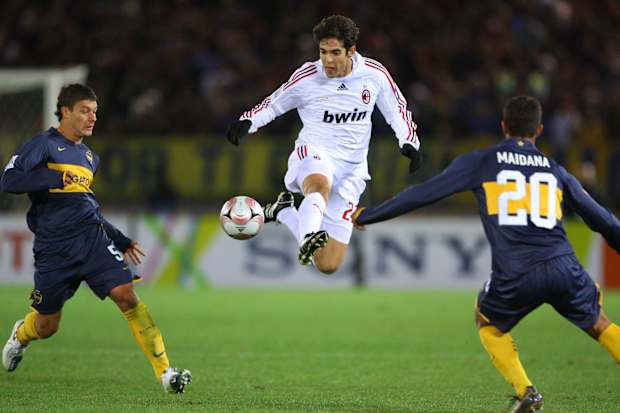
The greatest Club World Cup final remains debatable, but the 2007 encounter between Milan and Boca Juniors contained every element imaginable.
These teams had previously met four years earlier in the Intercontinental Cup, where Milan suffered a penalty shootout defeat to Boca after Andrea Pirlo, Clarence Seedorf, and Alessandro Costacurta all failed from the penalty spot.
The Rossoneri squad, truthfully, hadn't changed dramatically. Six players from the defeated 2003 team started again for Carlo Ancelotti in 2007. Cafu and Filippo Inzaghi also featured in both encounters.
Inzaghi emerged as Milan's champion in this match, with the precise striker netting Milan's opening and final goals in an exciting 4–2 triumph. Ancelotti's team pulled clear of Boca after future Inter striker Rodrigo Palacio quickly equalized the initial goal.
Though they contributed significantly, Boca had no response to Kaka, who scored once and assisted both of Inzaghi's goals. The Brazilian was magnificent.
The final ended with both teams reduced to ten players, and substitute Pablo Ledesma, who was also dismissed, scored a late consolation goal.
